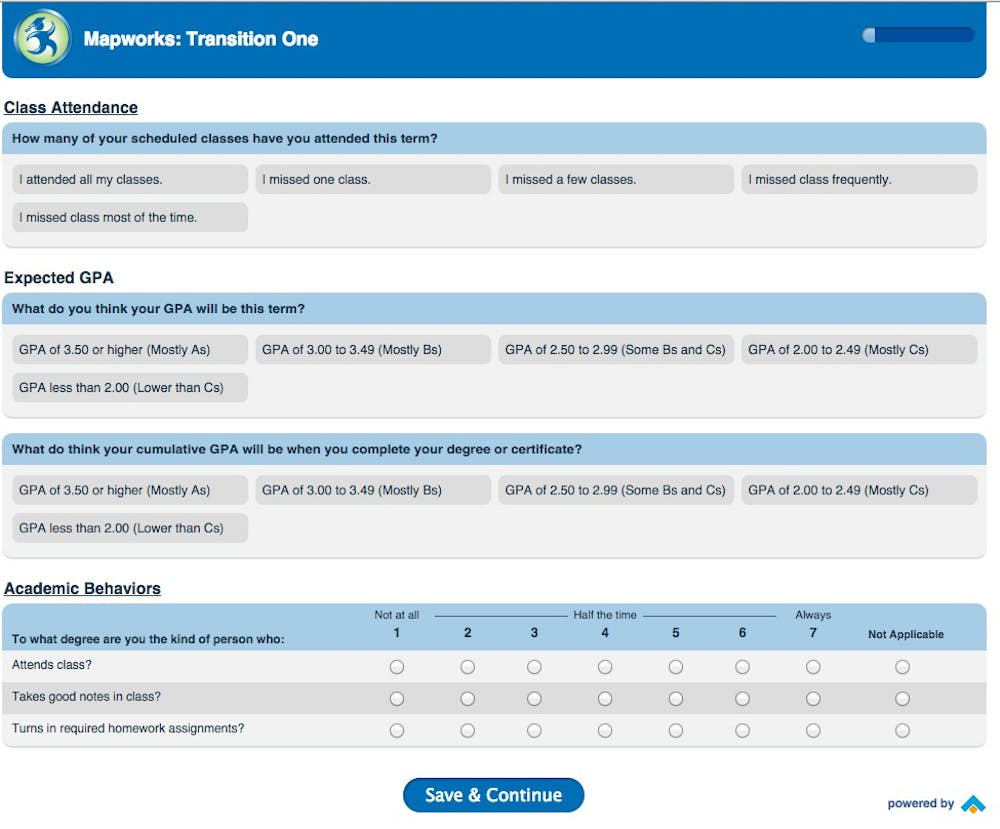The Making Achievements Possible survey (Map-Works) is more than just another one of the many surveys that come to students' bsu.edu email.
The survey, designed to help improve student achievement at the university, is given to freshmen, sophomores and new transfer students at the university.
It was developed more than 20 years ago, and Bill Knight, assistant provost for institutional effectiveness, said the survey helps students understand how they fit in at the university and how to meet any challenges that may come up.
"Map-Works also provides information for campus administrators, retention and graduation specialists, freshman advisors, and residence hall directors to use in working with the students," Knight said. "For example, the residence hall staff will reach out to the students who indicate that they are very homesick on the survey."
The survey asks students about topics such as potential roommate issues, study habits and homesickness. The Fall 2015 survey is still open, so the university doesn't have a final response rate yet. But in 2014, 89 percent of first-year and new transfer students and 41 percent of second-year students completed the survey, Knight said.
While the survey is useful for the university, they aren't the only ones who can utilize the data it gives. Residence halls can as well.
Joe Ryan, Botsford/Swinford hall director, uses Map-Works data to have more pointed conversations with students. He also uses it to help direct Resident Assistants with ways to help the students on their floor.
“If I ask a student if they study, that’s a yes or no question," Ryan said. "But if I can ask them how much, when or how they study, that opens the door for a conversation."
If a student is struggling in a course, and reports they don’t have good study skills, Ryan said he can help them to improve on that to bring up that GPA by forming a study group. For example, if Ryan sees 20 people on a floor are struggling with Math 125, he can go to that RA and try to start a study group instead of picking a random class to form a group for.
“I’m taking that information and seeing there’s a need based on the responses. It’s a way to interpret how we do our programming effort throughout the hall,” Ryan said.
The test can show what areas a student is struggling in and the hall director can then point them to resources on campus that can help them. The effort is to ensure students enjoy their experience and get all the help they need, Ryan said.
“I’ll often tell students I don’t know all the answers, but I know who does what on campus and if I don’t know we can look it up on the computer or make some phone calls to help them find that resource,” Ryan said. “It’s part of my responsibility as a residence hall director to care for each student and look at everyone’s reporting."
Freshman exercise science major Rachel Eckhart’s dorm, Woodworth, ties the Map-Works survey to being able to vote on visitation hours.
“It’s frustrating when no one votes because we have to get 85 percent [of the building to do the survey] to get 24 hour visitation. I thought the survey was beneficial because my RA got to know me better and I got to know myself better,” Eckhart said.
Sophomore public relations major Trevor Holland has taken the survey both years and thought it was a way to get a sense of what his peers might be struggling with. While he didn’t struggle with the things on the survey, once he became aware those things were happening, he noticed it more from others.
“I think it’s really great for first year students and the university because people really do struggle and for them to have a gauge of it is good so they can target those areas and really make sure they’re helping the people that need it,” Holland said.
Joel Bynum, assistant director of Housing and Residence Life, said the survey provides a wealth of information about students.
“The survey tells us who is struggling and empowers us to help them because we don’t always know who’s struggling," Bynum said. "It’s a big jump from the home to university environment, and our goal is academic success."





